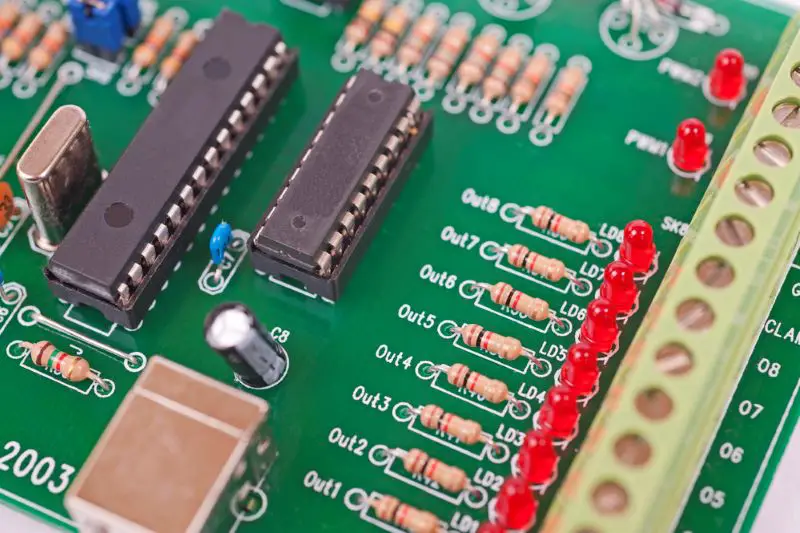Click here to get this post in PDF
Control circuits are the backbone of numerous systems, orchestrating the operation of various electrical components to achieve desired outcomes. From industrial machinery to household appliances, control circuits play a pivotal role in regulating processes and ensuring safety. Join us as we embark on a journey to demystify control circuits and uncover their significance in today’s interconnected world.
Control circuits are essential components in industrial automation systems, responsible for regulating the operation of machinery and processes. These circuits utilize electrical signals to command various devices, such as motors, valves, and sensors, to perform specific actions.
- Relay-Based Control Circuits: Traditional control circuits often rely on electromechanical relays to control the flow of electrical power to different components. These circuits are simple and robust, making them suitable for basic automation tasks. Relays act as switches, opening or closing circuits based on the presence or absence of input signals.
- Solid-State Control Circuits: With advancements in technology, solid-state components such as transistors, thyristors, and integrated circuits have become prevalent in control circuit design. Solid-state circuits offer faster response times, higher reliability, and greater flexibility compared to relay-based circuits. They are particularly well-suited for applications requiring rapid switching and precise control.
- Programmable Logic Controllers (PLCs): PLCs represent a sophisticated evolution of control circuits, integrating powerful computing capabilities with a wide range of input/output modules. These versatile devices allow for the programming of complex control sequences and logic functions, making them indispensable in modern industrial automation systems. PLCs can be programmed to execute specific tasks based on input conditions, enabling highly customizable and adaptable control solutions.
In addition to their control functions, PLCs often incorporate features such as data logging, remote monitoring, and communication with other devices, further enhancing their utility in industrial automation.
Advantages and Disadvantages:
Relay-Based Control Circuits:
- Advantages: Simple design, robust construction, and compatibility with existing systems.
- Disadvantages: Limited scalability, slower response times, and susceptibility to mechanical wear and tear.
Solid-State Control Circuits:
- Advantages: Faster response times, higher reliability, and greater flexibility in control functions.
- Disadvantages: Higher initial cost, complexity in design and troubleshooting, and potential compatibility issues with existing systems.
Programmable Logic Controllers (PLCs):
- Advantages: Versatility in programming, scalability for complex systems, and integration with other automation devices.
- Disadvantages: Higher initial investment, specialized programming knowledge required, and vulnerability to cyber threats if not properly secured.
What is it Used to Control?
Control circuits are used to manage a myriad of processes and equipment in industrial settings, including manufacturing plants, power plants, and transportation systems. Some common applications include:
- Motor Control: Control circuits regulate the operation of motors in machinery and equipment, controlling their speed, direction, and torque to ensure precise and efficient performance.
- Process Control: In industries such as chemical processing and manufacturing, control circuits monitor and adjust various parameters such as temperature, pressure, and flow rates to maintain optimal conditions and ensure product quality.
- Safety Systems: Control circuits play a crucial role in implementing safety systems, such as emergency stop circuits and interlock systems, to protect personnel and equipment from hazardous conditions.
Electrical control circuits are the backbone of industrial automation, providing the means to precisely regulate and coordinate complex processes and machinery. Understanding the different types of control circuits and their applications, along with their respective advantages and disadvantages, is essential for engineers and technicians involved in designing, implementing, and maintaining automation systems. With the advent of advanced technologies like PLCs, the capabilities of control circuits continue to expand, driving innovation and efficiency in industrial automation.
Explore the wide range of control circuits available at Quotebeam.com.
You may also like: 6-Layer Vs. 8-Layer PCB Assembly Cost
Image source: Depositphotos.com

